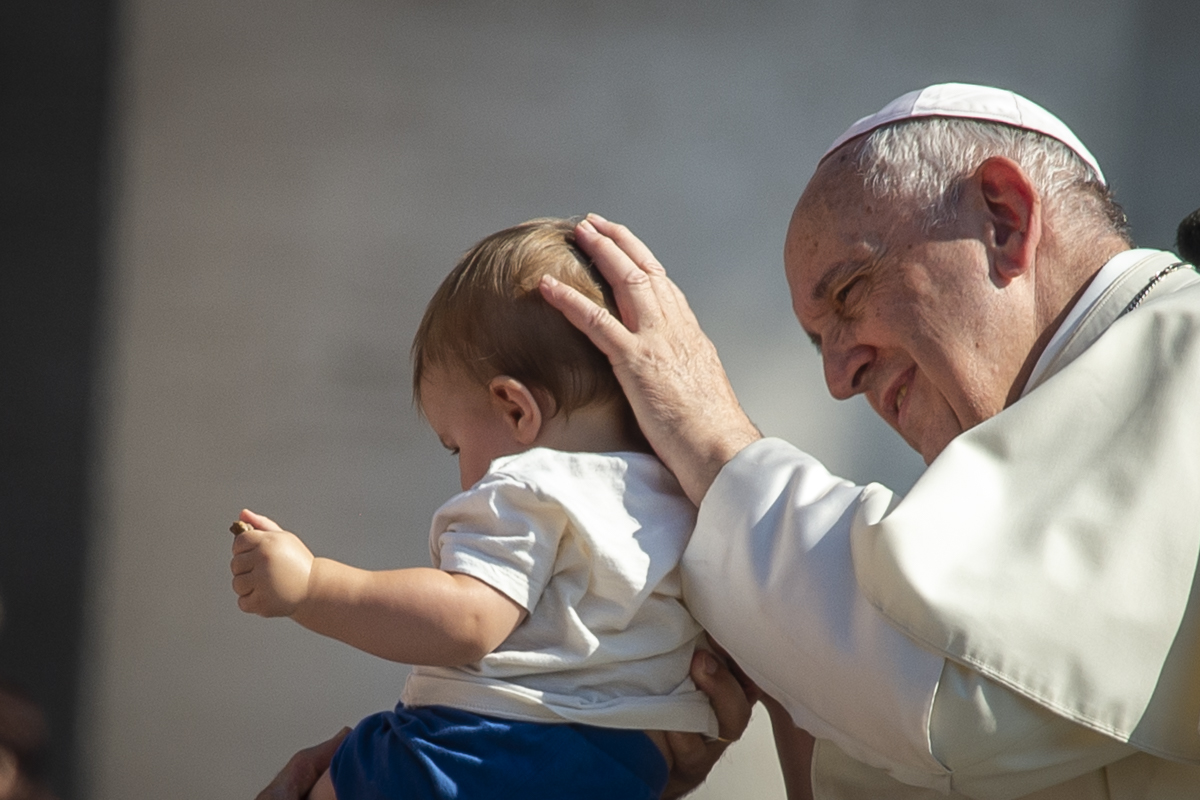If we look at these first brothers and sisters, we find four outstanding qualities.
Lenten Campaign 2025
This content is free of charge, as are all our articles.
Support us with a donation that is tax-deductible and enable us to continue to reach millions of readers.
We can look through the windows of the first Christian community, and discover the characteristics of these first brothers and sisters in the faith.
Pope Francis offered this “tour” as he continued with his reflections on the Acts of the Apostles, saying that the “collection of the Acts enables us to “look through the walls of the domus where the first Christians joined together as the family of God, the space of the koinonia, that is of the communion of love between brothers and sisters in Christ.”
The whole of these first Christians’ lives was the “scene of the work of God,” which also included miracles worked by the Apostles. “The extraordinary becomes ordinary and daily life becomes the space of the manifestation of the living Christ,” the pope said.
This first Christian community, the Church of Jerusalem, is the “paradigm of every Christian community,” the Holy Father said. It is an “icon of a fascinating fraternity,” he added, that must neither be “mythologized nor minimized.”
If we “look through the windows,” so to speak, what do we see?
The Christians listen attentively to the didaché,theapostolic teaching;
They have interpersonal relationships of quality, also through the communion of spiritual and material goods;
They make memorial of the Lord through the “breaking of bread,” that is, the Eucharist;
They dialogue with God in prayer.
“These are the attitudes of the Christian, the four traces of a good Christian,” Francis said.
This first Christian community “banishes individualism to favor sharing and solidarity,” as “there is no place for selfishness in the soul of a Christian.”
And Luke tells us that the believers stay together (see Acts 2: 44). Closeness and unity are the style of believers: close, concerned about the other, not to gossip about the other, no, to help, to be closer.
The grace of baptism thus reveals the intimate bond between brothers in Christ, who are called to share, to identify themselves with others and to give “to anyone who had need” (Acts 2: 45), that is, generosity, almsgiving, concern for the other, visiting the sick, visiting those who are in need, who need consolation.
This fraternity is coupled with a “true and authentic liturgical life.” And God guarantees the growth of this community. “The perseverance of believers in the genuine covenant with God and with brothers becomes an attractive force that fascinates and conquers many.”
We pray the Holy Spirit to make our communities places where we can welcome and practice the new life, the works of solidarity and communion, places where the liturgies are an encounter with God, which becomes communion with our brothers and sisters, places that are doors open to the heavenly Jerusalem.












